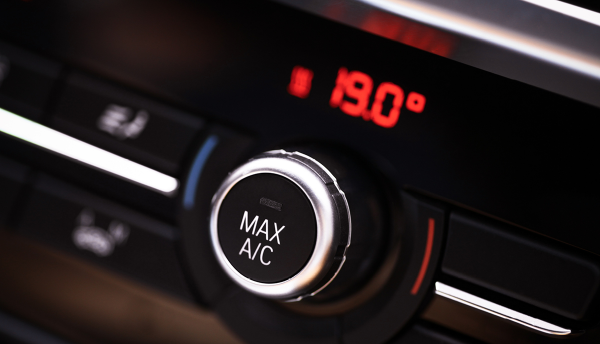
Japanese auto suppliers have reported strong results for the fiscal year (FY) that ended in March, thanks to a persistently weakening yen, among other factors. Denso said that it posted a group operating profit of JPY262.4 billion (USD2.8 billion), a 63.2% year-on-year (y/y) increase, while its net profit for the FY more than doubled y/y to JPY181.7 billion, on sales of JPY3.58 trillion, a 13.5% y/y increase.
Aisin Seiki, meanwhile, has reported similarly robust results for the recently concluded FY. The supplier has revealed that its net profit for the period jumped nearly 40% y/y to JPY77.5 billion and operating profit rose 22.2% y/y to JPY148.9 billion, on sales of JPY2.53 trillion, up 10% y/y. Another Japanese supplier, JTEKT, a manufacturer of steering and driveline components, has said that its net profit for FY 2012/13 rose 4% y/y to JPY13.8 billion, while operating profit contracted 18.2% y/y to JPY29.2 billion, on sales of JPY1.07 trillion, up 1.9% y/y.
Stanley Electric has reported that its FY 2012/13 net profit jumped 28.5% y/y to JPY17.7 billion and operating profit increased 3.9% y/y to JPY27.5 billion, on sales of JPY263.1 billion, up 8.2% y/y. Finally, Toyoda Gosei has reported that its FY 2012/13 net profit more than doubled y/y to JPY21.4 billion and operating profit surged nearly 80% y/y to JPY36.7 billion, on sales of JPY599.6 billion, up 19% y/y. For the current FY ending in March 2014, the company projects an operating profit of JPY40 billion and a net profit of JPY24 billion, on sales of JPY620 billion.
Many suppliers are also forecasting a positive outlook through the 2013/14 financial year as well. Denso has issued an upbeat earnings outlook, projecting net profit to rise 6.8% to JPY194 billion and operating profit to increase 8.6% to JPY285 billion, on sales of JPY3.80 trillion, up 6.1%. Aisin Seiki sees its net profit declining 9.7% to JPY70 billion and operating profit increasing 4.1% to JPY155 billion, on sales of JPY2.65 trillion, up 4.7%. Stanley Electric expects to earn an operating profit of JPY35.5 billion and a net profit of JPY22.2 billion, on sales of JPY302 billion. . JTEKT expects to earn an operating profit of JPY36 billion and a net profit of JPY15.5 billion, on sales of JPY1.12 trillion.
Yen depreciation set to continue
The growth in Japan’s auto production during the first half of the last financial year was helped by government subsidies for eco-friendly car purchases and the recovery from the crippling earthquake and tsunami in March 2011. Denso was also spurred by strong car sales in North America for Japanese automakers and General Motors (GM), Ford, and Chrysler, helping boost its profits in its second biggest regional market.
But it’s the persistently weakening yen which has had a particular impact and will continue to for the rest of this year. Assisted by a large stimulus programme by the Bank of Japan initiated at the start of this month, the yen continues to depreciate against other major global currencies, currently hovering around JPY100:USD1 and JPY130:EUR1. This has allowed Denso to issue an optimistic profit projection, as it also benefits its Japanese customers including Toyota. Toyota’s recovery also helped Aisin Seiki's results, as it again reclaimed the mantle of the world’s largest global automaker from General Motors.
The yen, which has been depreciating ever since the current Japanese government assumed power towards the end of 2012, is forcing Japanese manufacturers to delay or rethink their overseas expansion plans, such as those at Nissan. Meanwhile, Toyota has decided to increase domestic production during the April-September half of fiscal year (FY) 2013/14 by about 10% from earlier plans in order to boost vehicle shipments as the weakening yen spurs export profitability. For Japanese suppliers, this is all good news.
US suppliers take first-quarter hit as a result of European downturn
Meanwhile in the US, suppliers are reporting first quarter results that are significantly affected by the production troubles in Europe.
Lear, which makes automotive seating and electrical components, said its net income fell 19% to USD108.5 million in the first quarter from USD134.1 million a year earlier. Revenue rose 8% from last year to USD3.95 billion. "Earnings decreased from last year, reflecting lower production in Europe, the impact of key programme changeovers and increased product and facility launch costs in South America," said the company in a statement. However, it expects 2013 full-year sales of USD15 billion to USD15.5 billion.
Dana's net income fell from USD62 million to USD34 million year-on-year. In a statement, the company said that its quarterly profit fell 45% due to lower North American sales of parts used in commercial vehicles and a slump in its off-highway business in Europe and Asia. BorgWarner's net earnings declined to USD142 million compared with USD158 million in the year-earlier period. Net sales for the automotive turbocharger and emissions systems supplier fell 3% from 2012 to USD1.85 billion due to lower production in Europe. BorgWarner is heavily exposed to Europe compared with its competitors, making it more vulnerable to production declines there.








